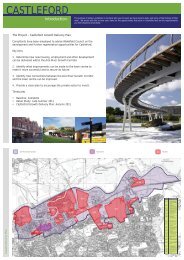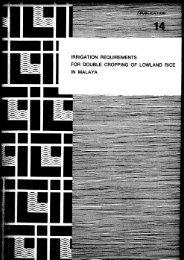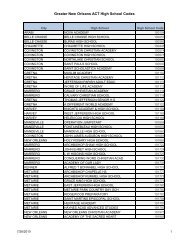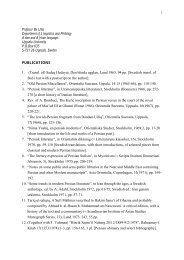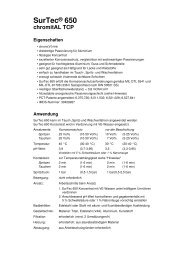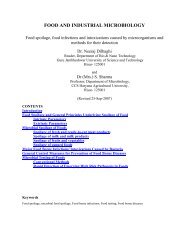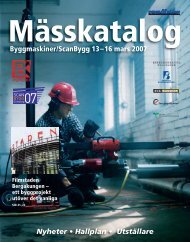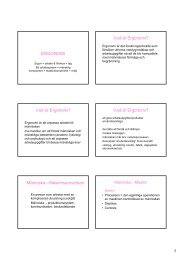On the Future of Indigenous Traditions - Munin
On the Future of Indigenous Traditions - Munin
On the Future of Indigenous Traditions - Munin
Create successful ePaper yourself
Turn your PDF publications into a flip-book with our unique Google optimized e-Paper software.
In this experience <strong>the</strong>re are two things worth mentioning here. Firstly, <strong>the</strong> Adivasis’<br />
special relation to <strong>the</strong>ir ancestral lands, and only when it remains with <strong>the</strong>m does <strong>the</strong>ir<br />
customary social system have its significance. In o<strong>the</strong>r words <strong>the</strong>y both complement<br />
each o<strong>the</strong>r. The knowledge base or <strong>the</strong> school <strong>of</strong> knowledge for <strong>the</strong> Adivasi people<br />
(including <strong>the</strong>ir language) within <strong>the</strong> basic rules <strong>of</strong> <strong>the</strong>ir institution <strong>of</strong> <strong>the</strong>ir customary<br />
system/law establishes <strong>the</strong>ir independent life and <strong>the</strong>ir livelihood. When hindered it<br />
leads to impoverishment in all respect. Whereas, <strong>the</strong> impoverishment for <strong>the</strong> non-<br />
Adivasis as project affected persons, when displaced is not at <strong>the</strong> same level. I have<br />
talked about that difference in <strong>the</strong> third chapter <strong>of</strong> this <strong>the</strong>sis.<br />
Secondly, in this case it was noted that those o<strong>the</strong>r than <strong>the</strong> Adivasis, i.e. <strong>the</strong> Muslims<br />
and <strong>the</strong> caste Hindu project affected persons were more receptive to displacement<br />
with cash compensation and jobs in <strong>the</strong> company. It was also seen that <strong>the</strong>y also<br />
organized <strong>the</strong>mselves to better negotiate with <strong>the</strong> company. The Adivasi in this case<br />
who wanted land for land in <strong>the</strong> first place were not given any priority by <strong>the</strong><br />
company, who said <strong>the</strong>re was no land <strong>the</strong> company could make available to <strong>the</strong>m. The<br />
Adivasi youngster also wanted to have contract work with <strong>the</strong> company and was not<br />
totally against cash. Most <strong>of</strong> Adivasis’ spending were on non-income generating or<br />
utility goods, whereas <strong>the</strong> caste Hindus or Muslim displaced would invest <strong>the</strong>ir money<br />
in buying plots <strong>of</strong> land some where else and buying vehicles that could be used as<br />
income from transportation or rent. For non-Adivasi project affected persons land,<br />
trees, house structure –by size, and every thing material was seen in monetary<br />
pr<strong>of</strong>iting terms, but for Adivasis it was only money (cash to be spent).<br />
In <strong>the</strong> words <strong>of</strong> Grogory Bahla <strong>of</strong> Bondabahal in Orissa who was displaced from<br />
Raurkela industrial estate says: “We dream <strong>of</strong> our land. Everything that we see, that<br />
we walk on, that we feel through our body; it belongs to our land. We need <strong>the</strong> land to<br />
think about ourselves, to know who we are. We are no people without our land. The<br />
government should understand this! This is not negotiable! Land cannot be<br />
compensated.” 77 But when <strong>the</strong>ir social system is broken <strong>the</strong>ir community is<br />
fragmented, and as individuals <strong>the</strong>y do not have any basis to negotiate.<br />
77 Ibid., 3.<br />
54



